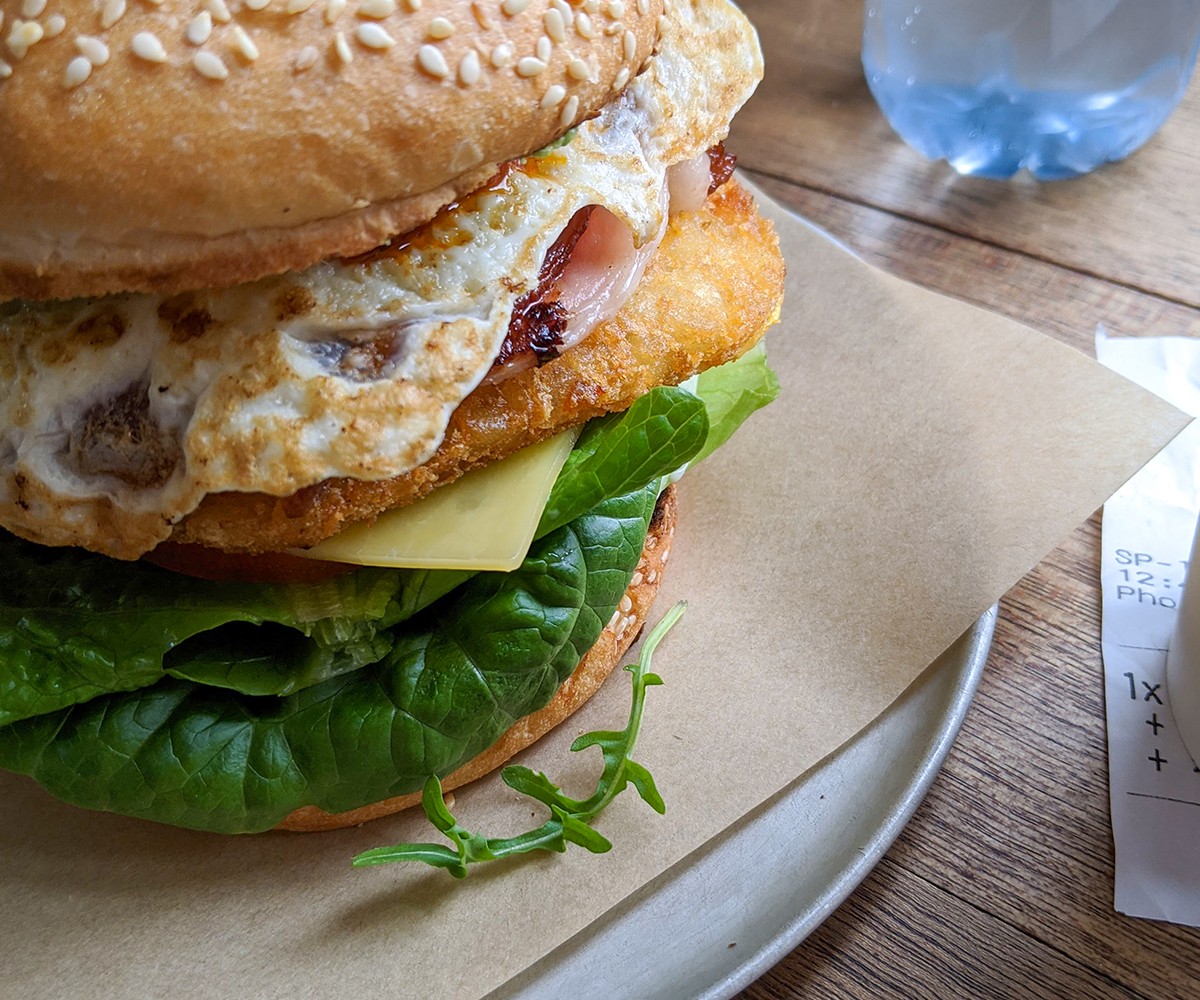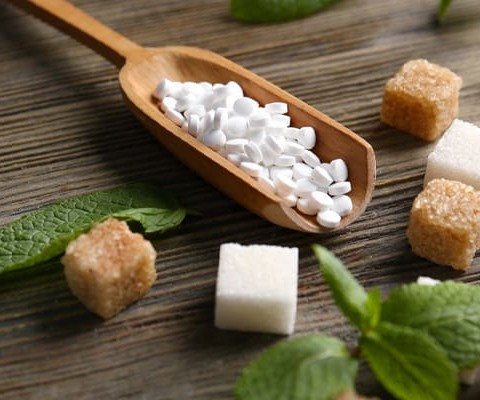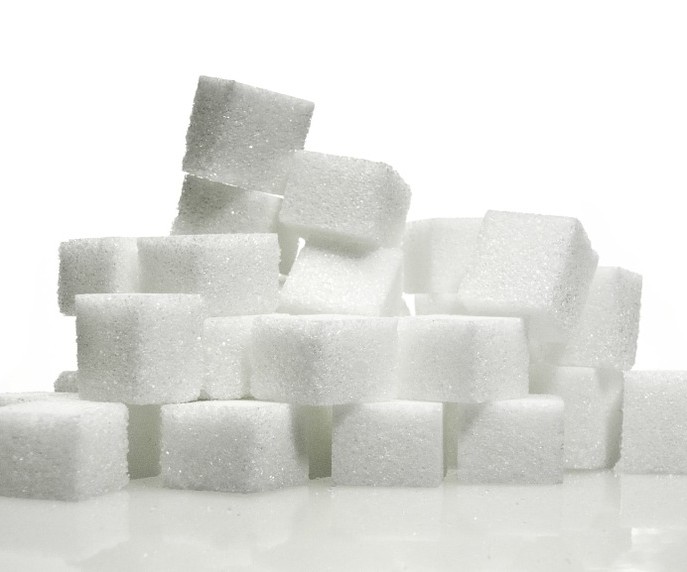There's a new review into artificial sugars

Can some artificial sugars increase your risk of cancer?
Before we dive into this study, research has previously found that when taken in the quantities we consume daily, artificial sugars are nothing to be concerned about.
And so now appears this new study that reports some additives founds in artificial sweeteners might cause higher cancer risk. The researchers analysed data from 102,865 adults, including 24-hour dietary records.
Now for starters, food reporting studies are notoriously unreliable. For a whole host of reasons, people don't accurately measure what they eat. But that's not to say it should be totally ignored.
Also, in the opening of their study, the researchers admit that whilst the ability of artificial sugars to cause cancer has been seen in experimental studies, "robust epidemiological evidence is lacking."
So what is epidemiological evidence?
It's when scientists take a whole heap of people, see how their lives play out health-wise, and look at what foods they're consuming in common. Then they draw a link and a conclusion.
But epidemiological evidence ISN'T cause and effect evidence, which is a much more solid scientific conclusion.
Cause and effect = dropping a ball and it hitting the ground; the effect is the ball hitting the ground and the cause is gravity. That can't really be debated.
And make no mistake, epidemiological research is highly important: whilst it isn't definitive, it's critical for generating a hypothesis that can potentially be life-changing (and saving).
So the researchers of this new study are saying that this epidemiological evidence is lacking, and thus this is why they have conducted their study.
So that's how we got here.
Specifically, the researchers looked at "the associations between artificial sweetener intakes (total from all dietary sources, and most frequently consumed ones: aspartame, acesulfame-K, sucralose and cancer risk (overall and by site)."
Great, so now you know what the previous research says, what sort of research this study was, and exactly what they investigated. Now we can move on.

The research on artificial sugars
The researchers looked at the data from the French population-based cohort NutriNet-Santé (2009–2021). As mentioned, this was data from 102,865 adults, who monitored their food intake 24 hours a day.
So, what did they find?
Adults who consumed large quantities of artificial sugars like aspartame and acesulfame-K had a higher risk of breast and obesity-related cancers compared to non-consumers.
Note: Previous epidemiological studies into different cancer topics have been criticised because they haven't made adjustments for the current state of the study subject's health. For example, previous studies have declared a certain food type unhealthy that can cause cancer, but haven't adjusted for the fact that the subjects were ALREADY at risk of cancer anyway; drinking too much alcohol, smoking, being overweight or obese, etc.
But this study did its best to adjust for these factors, with the models being adjusted for age, sex, education, physical activity, smoking, body mass index, height, weight gain during follow-up, diabetes, family history of cancer, number of 24-hour dietary records, and baseline intakes of energy, alcohol, sodium, saturated fatty acids, fibre, sugar, fruit and vegetables, whole-grain foods, and dairy products.
So, with that being said, the authors declare that:
"Limitations of this study include potential selection bias, residual confounding, and reverse causality, though sensitivity analyses were performed to address these concerns."
- Selection bias = People being chosen that were already at risk of cancers
- Residual confounding = The distortion that remains after controlling for confounding in the design and/or analysis of a study.
- Reverse causality = X and Y are associated, but not in the way you would expect. (While it is plausible that sunbathing can cause brown skin spots, it's highly unlikely that the brown spots cause sunbathing).
With this in mind, lots of experts are skeptical.
Including Clare Hughes, the Cancer Council nutrition program manager, who told Nine news here in Australia "those people also had other dietary factors like they didn't eat much fruit and vegetables or whole grains and also they ate more of the sugary and salty food, so we can't rule out they also had an impact."
But, the research hasn't stopped the European Food Safety Authority and the World Health Organisation from re-evaluating artificial sweeteners.
And currently, these artificial sugars are not classified as a cancer risk.
So, where does this study leave us?
Well, more research is needed before we start declaring artificial sugars to be unsafe.
And again, it's the dose that makes the poison. The suggestions from the studies before this one (which remain unchanged) were that in the dose we consume artificial sugars, they are currently not a threat.
But there's no doubt this is worth keeping an eye on, but we shouldn't be jumping to any conclusions just yet.
Personally, I'd suggest making sure you're exercising regularly, getting enough fibre, having a diet of 80% whole foods, not getting into a position where you're overweight or obese, and enjoying everything in moderation.
If we were to cut everything out that had a potential cancer risk, it may prove to be pretty limiting.
So, what does moderation look like?
Well, that all depends on how YOU define it. That might be a few cans of diet soft drink a week? It's entirely up to you.

The bottom line on artificial sugars
Is that the bulk of the science currently suggests artificial sugars are safe in the dosage we're consuming them. This new review brings fresh epidemiological evidence that has accounted for a lot of risk factors and is worth taking note of.
It found that adults who consumed large quantities of artificial sugars like aspartame and acesulfame-K had a higher risk of breast and obesity-related cancers compared to those who didn't consume them.
But the authors admit the limitations to the research, and we need to see cause and effect research into artificial sugars and cancer in the future.
References:
- Cook A, Pryer J, Shetty P. The problem of accuracy in dietary surveys. Analysis of the over 65 UK National Diet and Nutrition Survey. J Epidemiol Community Health. 2000 Aug;54(8):611-6. doi: 10.1136/jech.54.8.611. PMID: 10890873; PMCID: PMC1731719.
- Debras C, Chazelas E, Srour B, Druesne-Pecollo N, Esseddik Y, Szabo de Edelenyi F, Agaësse C, De Sa A, Lutchia R, Gigandet S, Huybrechts I, Julia C, Kesse-Guyot E, Allès B, Andreeva VA, Galan P, Hercberg S, Deschasaux-Tanguy M, Touvier M. Artificial sweetenersand cancer risk: Results from the NutriNet-Santé population-based cohort study. PLoS Med. 2022 Mar 24;19(3):e1003950. doi: 10.1371/journal.pmed.1003950. PMID: 35324894; PMCID: PMC8946744.
- Qurrat-ul-Ain, Khan SA. Artificial sweeteners: safe or unsafe? J Pak Med Assoc. 2015 Feb;65(2):225-7. PMID: 25842566.
Images from unsplash.com 1, 2, 3.
















































